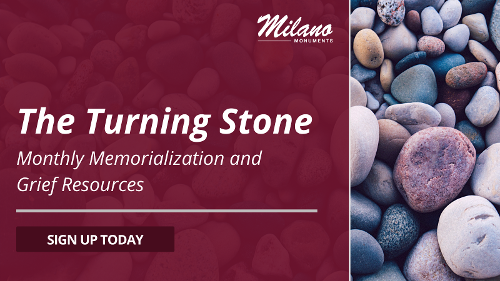Best friends play a bigger role in our lives than we may think. They can be the ones we trust most and the ones we laugh with often; they’re our partners in crime and shoulders to lean on. No matter the length of your friendship or your type of relationship, you may be left wondering what’s going to happen when they’re gone.
Losing a best friend can likely be one of the most difficult and heartbreaking experiences you have in your lifetime. And whether your best friend passed away recently or years ago, it can be hard to handle the grief from this type of loss.
The grieving process is unique to every individual—there is no right or wrong way to cope. Losing a best friend at a young age may feel disorienting and even traumatic, while losing a best friend as an adult may trigger a wide range of emotions. As a parent, be prepared to support your child through their grief. As an adult, be patient with yourself as you navigate a new world without your friend.
Continue reading to learn about the feelings you may experience after losing a best friend, plus tips on handling this type of grief.
Common Feelings After Losing a Best Friend
The five stages of grief is a framework that includes denial, anger, bargaining, depression and acceptance. After losing a best friend, you may experience some or all of these feelings. Use these tips to help you cope with each stage of grief:
- Denial. Allow reminders of your best friend to help ease you through the denial stage. This could mean looking at photographs, listening to meaningful songs, visiting their gravesite or planning their memorial. Reminders of your close relationship will help you accept the reality of loss.
- Anger. Look for ways to channel your anger in a healthy way, perhaps through exercise like running, swimming or kickboxing.
- Bargaining. After losing a best friend, you may find yourself bargaining with a higher power, thinking thoughts like, “If only I had called him that night, he’d still be here.” Talk about these feelings with those closest to you. Not only can they provide support, they can also offer some perspective that may help you better accept the loss of your best friend.
- Depression. If you find yourself experiencing deep sadness, look for a creative way to express your feelings. Activities like journaling or reading can help you avoid unhealthy behaviors and vices when the sadness is overwhelming.
- Acceptance. Find ways to commemorate the life of your best friend by memorializing their legacy.
The loss of a best friend can bring up an array of emotions and can leave you with some unanswered questions. While you may never get the answers you want, ignoring these common feelings after losing your best friend will only make your grief worse.
6 Tips for Handling Grief
There is no right or wrong way to work through your thoughts and emotions associated with the loss of a best friend. And there is no set time frame. Here are six ways to help yourself heal.
1. Allow Yourself Time to Heal
Inscriptions are one of the most popular design elements you will see on a memorial—single or companion. Ranging from phrases to quotes, dates or Bible verses, memorial inscriptions can be unique and special to the individual, husband and wife or surviving family members.
2. Spend Time With People Who Understand Your Grief
Once you’re ready, nothing compares to talking to loved ones. Your family and friends care about your wellbeing and want to be there to support you during this difficult time. It’s important that you also connect with loved ones on your own timeline.
3. Do Something in Their Memory
Whether it’s taking part in their favorite hobbies, supporting charities they believed in or sharing their life stories, doing something in the memory of your best friend makes handling grief easier. Over time, you may find comfort and even joy in the memories you have of your best friend.
4. Create a Memory Book or Photo Album
Going through photos and recalling special memories can help you process losing your best friend. If you create a memory book or photo album, do so at your own pace and be sure to give yourself breaks when necessary.
5. Journal, Read and Listen to Music
Keeping a journal during a time of grief can help you process what you’re feeling and ultimately cope with the loss of your best friend. Reading can also be therapeutic—books help us escape reality and feel connected to other peoples’ stories. Music can be another escape from reality that connects us to our emotions simultaneously.
6. Seek Professional Support
Losing a best friend is a unique type of loss that can make you feel lost in more ways than one—sometimes turning into a double loss, where you feel like you’ve lost your friend and yourself. Find a grief support group or reach out to a therapist for help in processing what you're going through.
Memorializing Your Best Friend
Memorializing your best friend, in the midst of grieving, can be overwhelming and challenging. If you're looking for support and information to not only help you through the memorialization process, but also the stages of grief, subscribe to our monthly newsletter, The Turning Stone.





